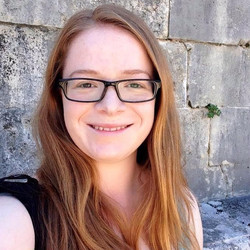Geography
I decided I wanted to study Geography when I realised how broad my interests were! I enjoyed scientific elements of climate and geology as well as human elements of migration and economics. I read an issue of The Economist and it helped me realise how many issues in the world relate to geography: that relation to so many things made me realise it was the subject for me. I looked at Oxford and saw that I could study both physical and human geography, and the options really intrigued me so I reckoned it was worth a go.
My favourite thing about studying Geography is how the subject is so relevant and interesting to so many people – the topics covered always have a real world example and there’s always a talking point from your lectures with almost everyone. The overlap with biology, geology, economics and politics among others means that chats with other subjects are really interesting and beneficial. My best experience of studying has been chatting about the elements of memory and power in national identity, and how nations can be considered as having biological elements! It was really interesting for considering the philosophies involved in geographical inquiry.
Geography was always my favourite subject at school so it seemed like an obvious choice to continue it at university. I would like to go into the International Development sector and geography will give me a great base on which to build a career. I really enjoy the fact that Geography combines science and the arts, making it a fascinating subject to study. I love the range of topics that we cover, from debating Scottish independence with my tutor to learning the intricacies of the global climate system. In terms of my best experience of Geography, one lecture from first year stands out particularly. It was in a module on Post Soviet Europe and the lecturer was discussing events that had occurred in Russia the day earlier. You can’t get more up-to-date than that!
My experience studying Geography has been fantastic; after all there are few courses where you are able to take a week abroad with your mates and have it count towards your degree. However, much more than fieldwork opportunities go towards making Geography a great course. The range of different topics offered at Oxford, especially in human geography, make it a diverse subject – every week is different, so you never get bored by doing the same thing again and again. For instance, one week, I’m evaluating the World Development Report and then, the week after, I’m looking at why the kids’ film Ice Age is scientifically wrong. Geography is perfect for people who don't (or do) know what they want to do after their degree. Everything from finance to policy to academia is a potential destination for graduates.
Another example of why studying Geography at Oxford is great is the Fieldwork trips to either Tenerife or Copenhagen. I chose to go to Tenerife; there, I climbed a volcano, discovered species that had never before been found in a forest there, and still had time to lounge around the pool.
The geography course is, in essence, about connections: how different physical processes interact with each other, as well as with human processes and vice versa. In the first year, both physical and human geography is studies alongside a course of techniques (statistics, surveying technology, fieldwork methods) and Geographical Controversies which show how real world scenarios involve the course content. After this, there is a chance to specialise and drop either physical or human geography, while also taking on very specific options on topics such as deserts, islands, urban life and forensics.
What makes Oxford different?
In second year, the course takes quite a large turn for the philosophical and considers key thinkers (as a human geographer) whose works form the grounding for the writings for most of the academics in the field. Studying geography here means understanding the basis of the discipline, while also keeping up with cutting-edge research.
What helped inspire your love of the subject?
Reading National Geographic magazine each month was very helpful in my decision to apply for geography. It is full of stories and photos from around the world which made me want to understand more about how different people live and the effects humans are having on our planet. It's easy to read and has lots of relevant and up to date articles.
For me, the two resources I found most helpful were the Very Short Introduction series and The Economist: however, it’s worth just watching the news and thinking about how stories may link into your current studies in geography, or how specific examples (e.g. a flood in one area) links to the wider world.
Have a good look around your local library - mine was happy to order in books for me so I got access to some of the more obscure books I wanted.
Tell us about your interview?
I loved my interview! I went off on a rant about how bad recycling is in America and talked for ages about these kids I babysat, and how even though it wasn't formal employment I thought the social benefits of babysitting as recurring and community based were just as important. It wasn’t scary in the slightest, it was just like a fun conversation about Geography stuff I wanted to talk about.
Applicants that might be offered a place are invited for interview in December. See Geography interviews for more information.
Find out more
Make sure you read the official prospectus entry for the course which contains entry requirements, full course structure, additional interesting resources and full details of the application process.
If you're going to apply, you'll want to check which Oxford colleges offer this course.





